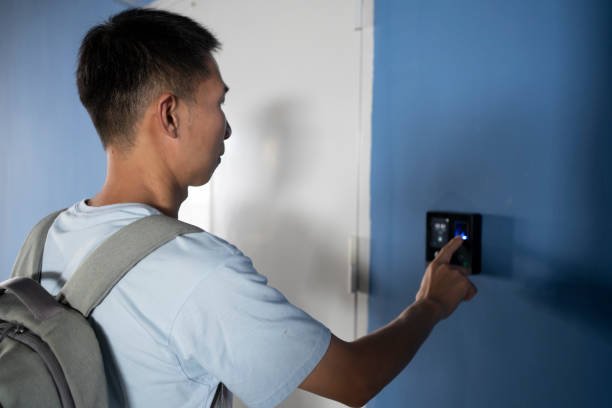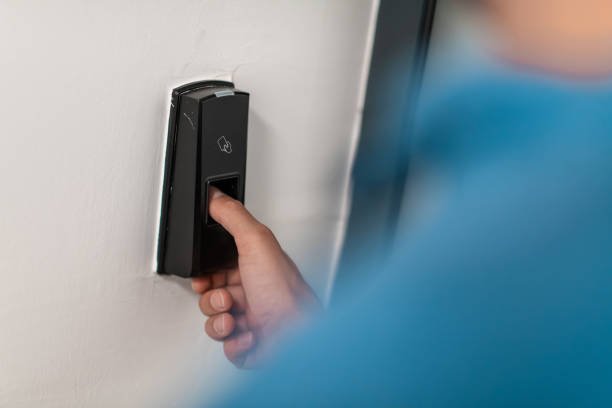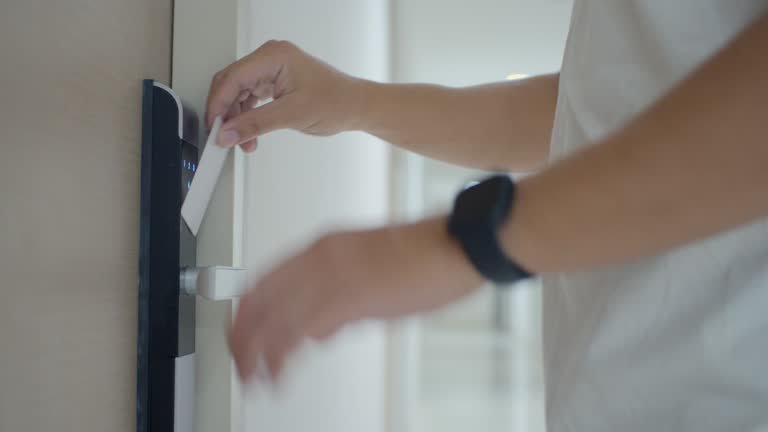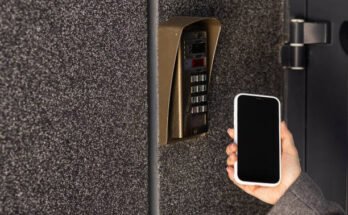1. Introduction: How Smart Locks Are Changing Apartment Security.
The advancements in technology have been fast and furious with the shift from traditional security systems to smart products and none perhaps has captured this shift more than smart locks. Smart locks are most advantageous for rental properties such as apartments where residents prefer the areas and security.
More renters and property managers are adopting these devices to change the concept of security doors in apartments. In this article, we will discuss the transformation that smart locks are bringing to the apartment security system, the benefits that come along with it, and why they are fast becoming a norm.
2. What Are Smart Locks?

Definition of Smart Locks
Smart locks are specifically, door locks that do not require keys to open doors in a house or an apartment. They can be managed from another location with a smartphone, a tablet, or any other connected device. With smart locks, people can eliminate the usage of regular keys to gain access to their homes as it provides a secure way to address the same challenge.
Types of Smart Locks
Smart locks can be further categorized into various forms and they come with distinct functions. Keypad smart locks use codes for unlocking while their biometric smart lock counterparts use fingerprint features. Bluetooth smart locks connect with the phone to lock and unlock automatically when you approach.
3. Benefits of Smart Locks for Apartment Security
Keyless Entry and Convenience
shared viewership is another valuable advantage of smart locks since it allows the residents of an apartment to gain access without the help of keys. This feature makes life easier, be it when carrying groceries, or when covered by a rainy day/night or any other natural conditions.
Enhanced Security Features
Smart locks provide enhanced security measures such as authorization using two factors, encrypted information, and controls to alert someone who wants to muck about with the lock. This is more secure than the standard issue locks as it has an additional unique access point.
Integration with Other Smart Devices
4. Key Features to Look for in a Smart Lock
Remote Access Control
Remote control of your door lock is convenient when increasing the security of your apartment. Remote access means you can allow people into the house even when you are not around, or unlock the door if you are away and fear you may have locked yourself out.
Activity Logs and Notifications
Some of the new models of smart locks include activity recording which will enable you to monitor those who come and go in your apartment. You can receive real-time notifications, which keep you in touch always on who has visited your space.
Compatibility with Smart Home Systems
It is also important to determine if your smart lock will integrate with other smart home systems you use. Smart locks compatible with Alexa, Google Home, or Apple’s HomeKit allow for simple integration and offer superior control.
5. Smart Locks vs Traditional Locks

Security Comparison
Compared to the normal locks that can be easily picked or even bumped, most of the smart locks employ encryption making it a lot harder for a third party to gain access to the house. Of course, no system is perfect but the security of smart locks is significantly higher in terms of the tactics that are used.
Convenience and User Experience
One of the biggest benefits of smart locks is that you do not have to carry a conventional key and that speaks a lot for customer satisfaction. If you feel like turning the lights on, you just touch the screen of your phone and your door will open the moment you tap it.
Cost and Maintenance Considerations
Smart locks might be slightly more pricey than a standard lock; however, the extra security and expanses of use are typical of the higher price. The main feature of smart locks is easy maintenance as the control panels rarely need anything other than battery replacement.
6. How Smart Locks Are Improving Security for Renters
Controlled Access for Multiple Tenants
Smart locks have particular usefulness in buildings where there are multiple residents or different tenants. Every individual tenant can have its code or digital key; users can temporarily remove access to the space immediately if, for instance, a tenant decides to leave.
Temporary Access for Guests or Maintenance Workers
Smart locks let renters permit temporary access for friends/family/Guests or even contractors. This saves time from having to replicate keys or being around to open the door for any person.
Better Privacy and Peace of Mind
Possibility to regulate people to have access to the apartment and when smart locks provide more privacy. This feature makes one receive notification when the locks are engaged and you feel more secure.
7. Are Smart Locks Safer Than Traditional Locks?
Potential Vulnerabilities of Smart Locks
As we know, smart locks have some weak points like any other technology. Some could be easily hacked, but manufacturers are enhancing encryption and security measures daily to contain such vulnerabilities.
Overcoming Security Concerns with Smart Lock Encryption
Sophisticated cryptographic methodologies and two-factor security are the most important factors that can make smart locks more secure. These features are a bonus of the home security that prevents intrusion into the apartment.
8. Real-world examples of Smart Locks in Apartments

Case Studies: Apartments Using Smart Locks
Large housing estates incorporate smart lock technology into their security systems easily. In New York and Los Angeles, smart locks have already become rather popular and many newly built apartment buildings have started incorporating these innovations into their apartments, appealing to renters with the notion of modern and secure living.
Success Stories and Tenant Experiences
Other tenants savor the relative convenience that accompanies Smart Locks after changing from their previous insecure Locks. For one, a tenant was given a chance to remotely allow a delivery person into their apartment, which eliminated the incidence of missing deliveries.
9. Smart Locks and Property Management
Streamlining Access for Property Managers
Property managers can manage access to several flats at a go denying physical keys to their key functions. This makes work simpler and more effective, especially in instances where one has to control several units.
Reducing Costs and Improving Efficiency
Smart locks allow for flexibility that eliminates the need to change the locks every time a tenant moves out thus sparing property managers the cost of doing it.
10. Conclusion
Smart locks are being introduced to the apartment housing market transforming the way the doors are locked and secured providing more convenience, new dimensions of security, and application to other smart home technologies.
This makes it clear that as more and more renters, property managers, and apartment complexes embrace this technology, the way apartment security works will go through a tremendous revolution. Whenever you think about the security upgrade of your apartment, one of the tools that can simplify your life and enhance safety is smart locks.





2 Comments on “How Smart Locks Are Changing Apartment Security.”